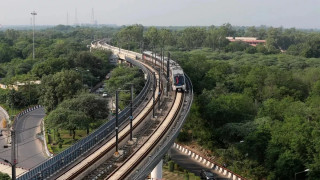
Saket Gokhale’s Apology Highlights Pattern of Baseless Claims and Legal Climbdowns in Indian Politics (Image: PTI (File Photo))
National News: Trinamool Congress MP Saket Gokhale has issued an unconditional public apology to former diplomat Lakshmi Murdeshwar Puri, closing a defamation case that has lingered since 2021. Gokhale had posted tweets questioning Puri’s purchase of a property in Geneva, Switzerland—allegations that were proven baseless. The Delhi High Court mandated the apology, following repeated delays and threats of civil detention for non-compliance. In addition to apologizing, Gokhale has been ordered to pay Rs 50 lakh in damages and is now prohibited from making further defamatory statements on the matter.
While this episode concludes a specific legal case, it points to a broader and recurring pattern in Indian politics: opposition leaders making provocative, often unverified allegations, only to retract them under legal or public pressure. This isn’t the first time high-profile leaders have found themselves in similar situations. Congress figures such as Rahul Gandhi, Digvijaya Singh, Jairam Ramesh, and Mani Shankar Aiyar have all had to walk back incendiary remarks after legal scrutiny or public backlash.
Aiyar later claimed his remarks were misunderstood, stating he meant "low-level behaviour," but the damage was already done.Similarly, Jairam Ramesh, in 2019, accused NSA Ajit Doval's son, Vivek Doval, of financial impropriety based on an unverified media article. When faced with a defamation lawsuit, Ramesh eventually issued a written apology, acknowledging that he had not independently verified the claims before making them public.
In another case, Sanjay Singh falsely implicated a BJP youth member, Ankit Bhardwaj, in an attack on AAP leader Kapil Mishra in 2017.The accusation was later proven baseless, and Singh was forced to publicly apologise, admitting to a case of mistaken identity.Even senior leader Digvijaya Singh wasn't immune to this pattern.In 2023, he posted defamatory content about RSS ideologue M.S. Golwalkar, which led to legal proceedings.
A court order in 2024 directed Digvijaya Singh to issue a written apology, further reinforcing the trend. Across these incidents, a consistent theme emerges: inflammatory statements are made without evidence, narratives are pushed for political mileage, and retractions follow only after legal pressure or public backlash.What makes these episodes stand out is Rahul Gandhi's declaration in a 2014 interview that "Gandhis don't apologise."
With every new controversy followed by a courtroom-mandated or damage-control-driven apology, the contrast between rhetoric and reality becomes starker.Saket Gokhale's recent public apology is a microcosm of this broader issue—A culture of unverified claims, sensationalism, and political point-scoring that ultimately falls apart under legal scrutiny. The bigger question now is: how long can this cycle of baseless allegations and belated apologies continue before it erodes all public trust?













Copyright © 2025 Top Indian News
